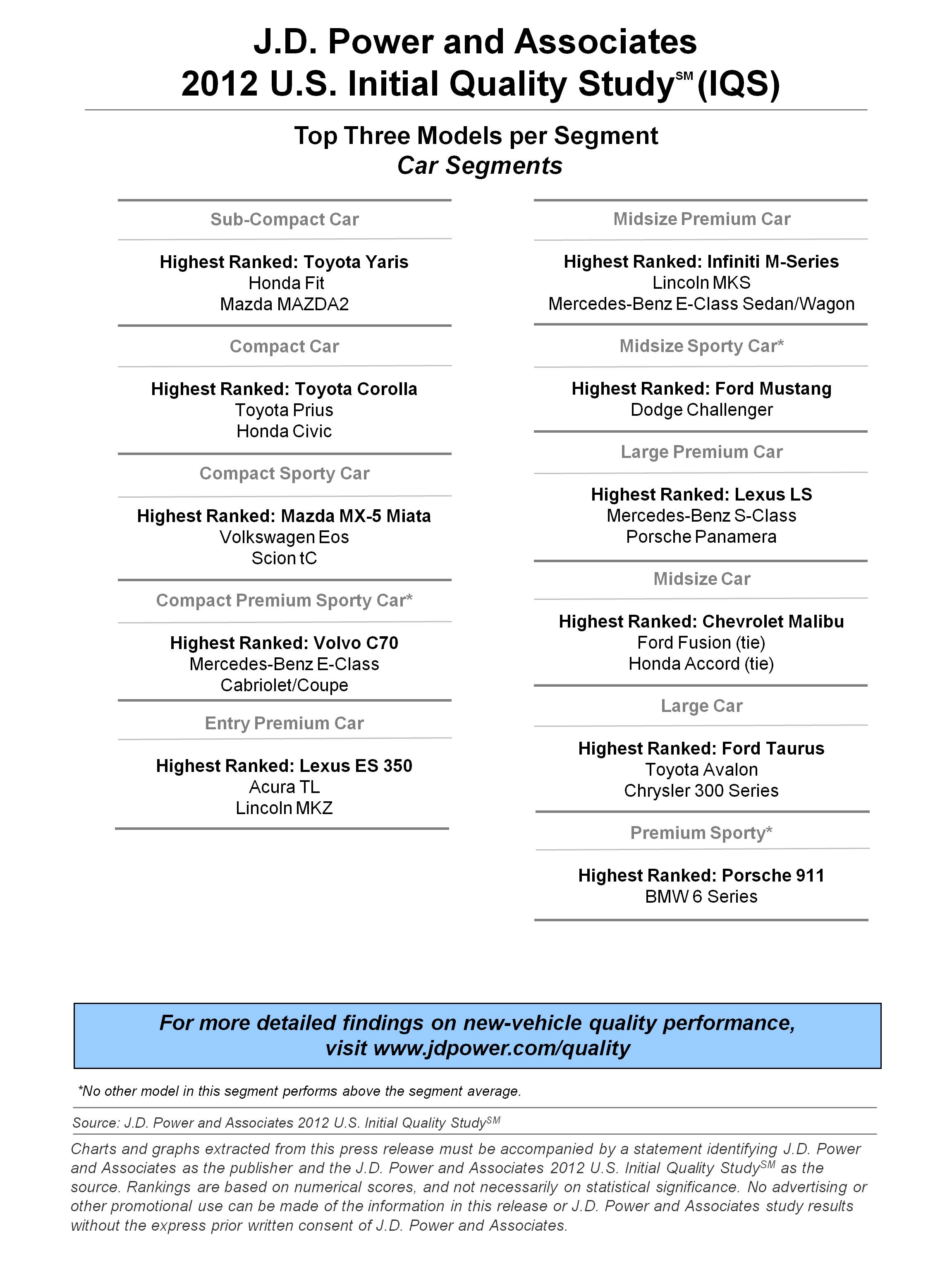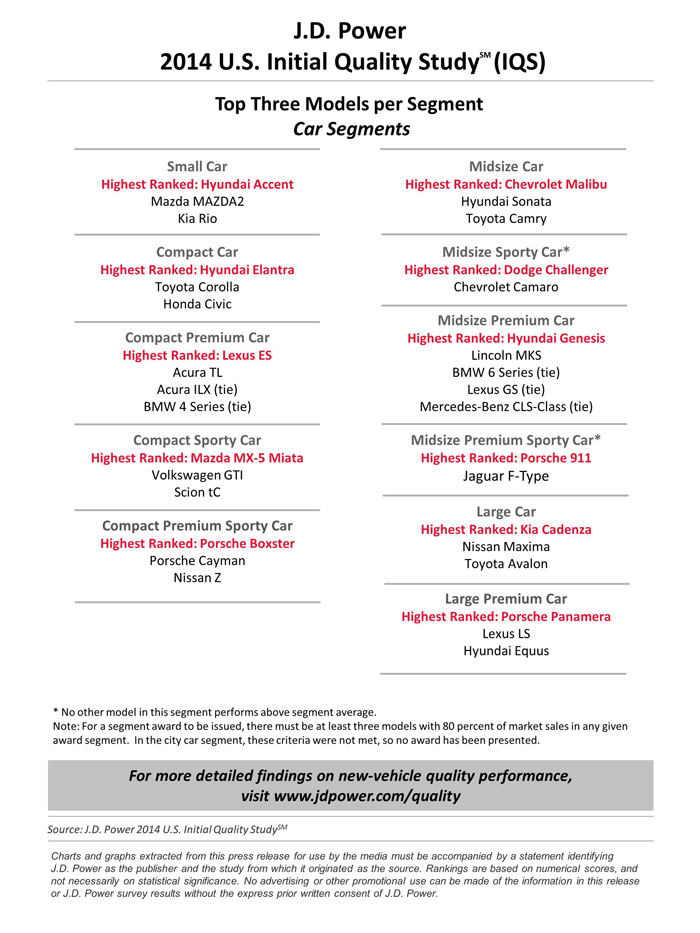“Reliability,” “Race bred,” “Youth movement,” “Functional sustainability,” “Class leading,” and my personal favorite “Provocative.” We as consumers and auto enthusiasts hear many phrases and buzz-words thrown around all year-long when it comes to our chosen obsession, but some of this industry slang does take on a greater meaning than just being buzzy or eye catching. “Award winner” is one of these phrases because way before the word “vanity” was defined in a dictionary and used in common conversation, we’ve always clamored for justification of our actions. It’s human nature. So when we hear “Award winner” or “Award winning,” we are programmed to think that whoever or whatever has won this award immediately holds validity. Marisa Tomei’s acting skills being the exception.
In the auto-sphere, there are countless awards. Car/truck/SUV/sports car of the year, most reliable of the year, best design of the year, etc, etc. And they always come along with the buzz-words. For example, you might hear, “Class leading, Motor Trend Car of the Year.” So naturally, we all go, “OOoooOOOoOOO! DO WANT! It’s a class leader! It’s a COTY!” While the awards are nice and you shouldn’t rule them out when looking at a car in any context, this should be something that’s only slightly considered. And here’s why.
Who gives out these awards?
Nearly everyone, but a few are more prestigious than others. JD Power & Associates, for example, hands out many of these awards to certain organizations and cars throughout the calendar year and is widely regarded as an excellent source for knowing what’s good. I call them out because they have 3 main categories for their awards and under these 3 categories they have many sub categories; thus, they hand out a LOT of awards. The 3 categories are the Vehicle Dependability Study (VDS), Initial Quality Study (IQS), and APEAL Study. We’re going to focus on the IQS.
What does Initial Quality mean?
By definition, Initial Quality means: the beginning degree of excellence of something. By definition, this should mean that each car in the IQS study should be judged as is once it rolls off the line for the first time. Qualities like how tight the stitching in the seats is should factor into play. Also, are there any squeaks, rattles, or failures of any kind once the car is started and driven for the first time. Maybe how comfortable the car rides would be part of the study criteria. In fact, this definition is something that JD Power doesn’t really adhere to when talking about the IQS. JD Power defines it as follows: “Taken from the IQS, which looks at owner-reported problems in the first 90 days of new-vehicle ownership, this score is based on problems that have caused a complete breakdown or malfunction, or where controls or features may work as designed, but are difficult to use or understand.” [Source] It’s not a bad thing that they have their own definition of what Initial Quality is, it’s only slightly confusing. That’s what we’re here to clear up. So now that we have a basis of understanding, we can now ask more questions as to why this study is relevant in any way.
Why is this category important?
I think this question is self explanatory, but it does merit discussion. It’s important for a few reasons:
1) JD Power is just not going to give our awards haphazardly to anyone. Especially because of criteria they use to judge these cars and automakers. The information is coming directly from the consumer so it’s important to remember that this is a highly scrutinized award and has been vetted through a rigorous process.
2) It’s also important to note that this is a hugely helpful tool to a new car buyer or even an auto journalist looking to see if a certain car he/she is testing is on the list. For those of us who aren’t enthusiasts, it’s particularly helpful. Without this, a person might get advice from their Uncle Ned who’s automotive opinions were formed in the late 60s. Uncle Ned’s idea of the ideal car is a 1969 Camaro and while that car is VERY awesome, he may suggest you go get a Chevy. Well if you don’t really know what you’re doing, that could be a fine suggestion as Chevy makes some excellent cars now, but without looking elsewhere you might be missing out on many other aspects of a car or the car buying experience. Seeing who has won awards, and in what categories, can help shape your opinion and buying strategy.
3) As you can see from this year’s results, Porsche, Lexus, and Toyota are 3 of the top 5 manufacturers in Initial Quality. That is consistent with nearly everything we hear about those 3 companies on the whole. But take a look at the other 2 in the top 5: Jaguar and Hyundai. These two companies, historically, are not considered to be reliable cars. Now while the first 90-days does not a long term reliable car make, it’s interesting to note that these two are in the top 5. Mainly because of the past reliability issues, but also because it shows that old standards can be broken and one should always do research and arm themselves with as much knowledge as possible before going to automotive war.
Should I trust this award?
Yes. 100%, yes. There’s no reason not to. As I said, JD Power wouldn’t just give these to any car or car maker. What point would that prove? None. And it’s all consumer based info anyway. So if this is part of your research criteria, then you should include it. But it’s shouldn’t be your only criteria.
What else should I look for/what other awards should I trust?
The IQS is a great tool, but it should be taken with only a medium sized grain of salt. While the IQS tells us one story, the VDS tells us another. Take a look at the two graphics below. It includes the 2012 IQS and the 2015 VDS (of which the criteria includes the problems experienced during the past 12 months by original owners of three-year-old, or those made in 2012, vehicles).
As you can see, while some cars are consistent with the initial findings back in 2012 (Mazda 2, Toyota Corolla, and Honda Civic, among others, are in both lists), there are newly defined categories as well as cars that weren’t on the 2012 IQS list. This should prove to the casual observer that taking advice from one source or looking in one place won’t tell you the full story of a car.
So why go to the trouble of explaining all of this?
Well, because some people just aren’t aware of some things. If someone reads this and then says to themself, “This was really informative and now I know a little more than I did about the auto industry,” then that’s all that matters. Just a friendly reminder that it pays to shop around, do research, and while the experts are normally right about many things, they aren’t right about everything.







Pingback:Initial quality - TundraTalk.net - Toyota Tundra Discussion Forum